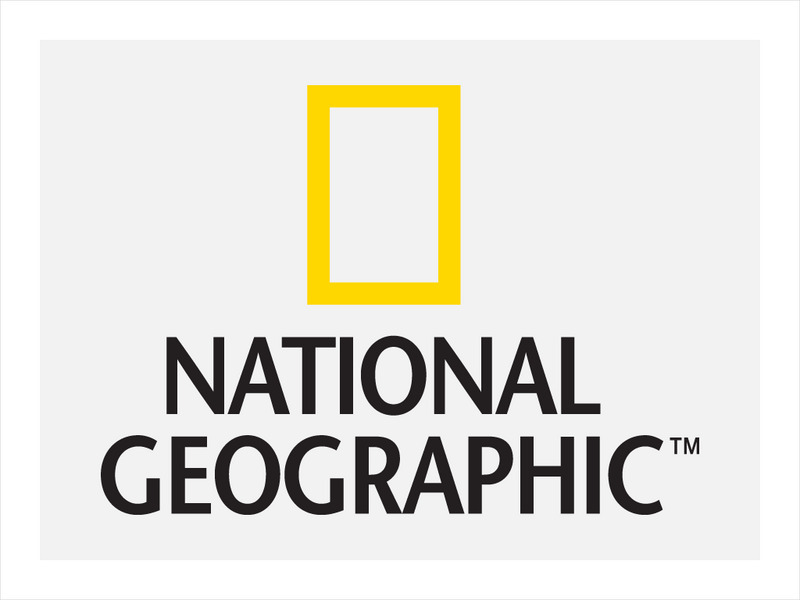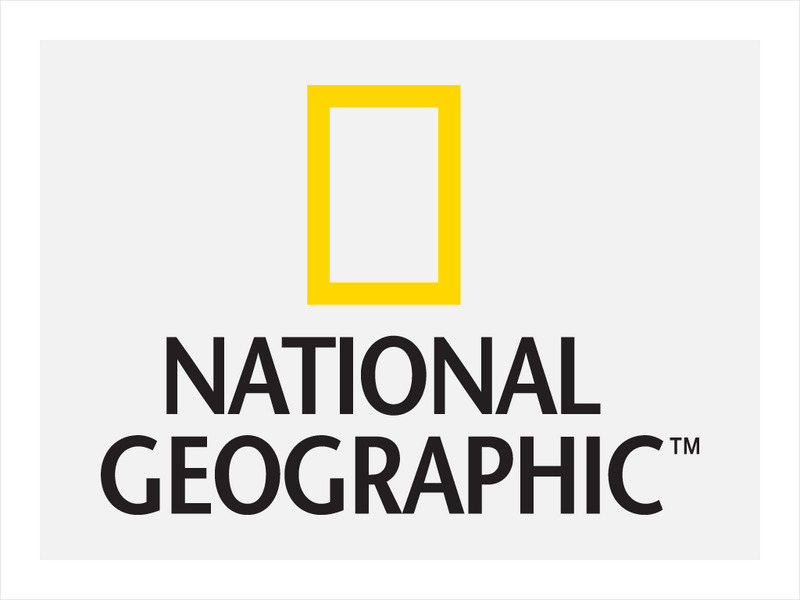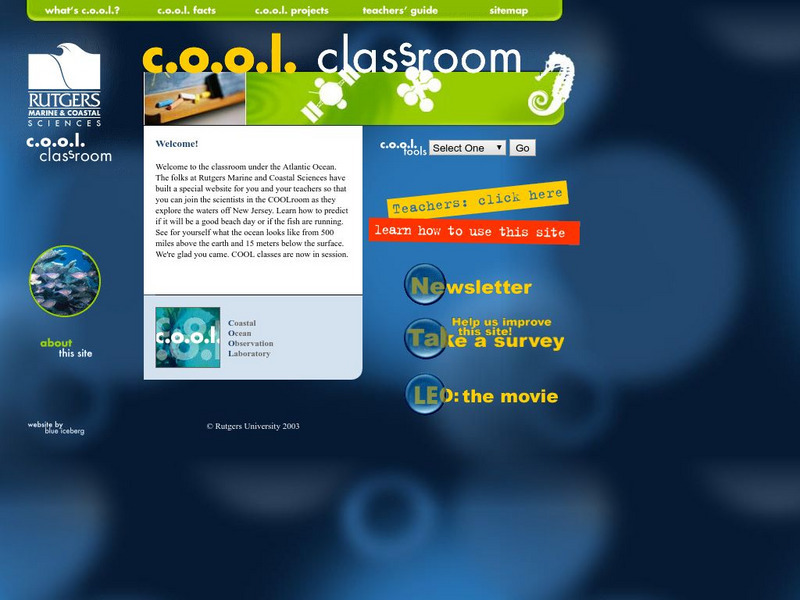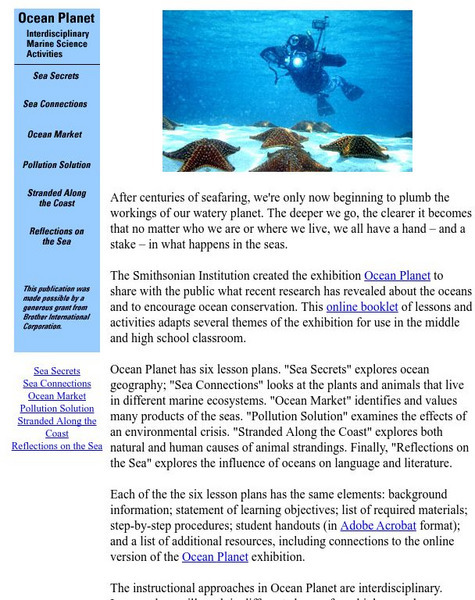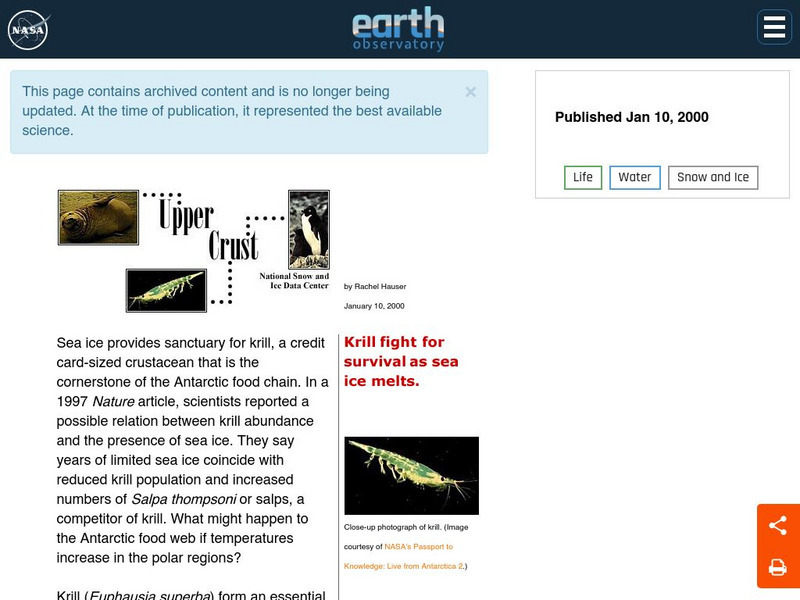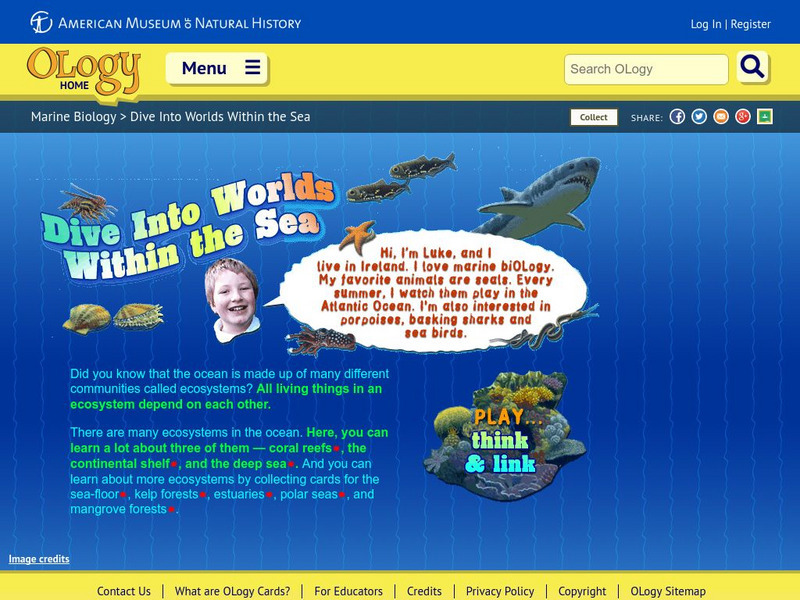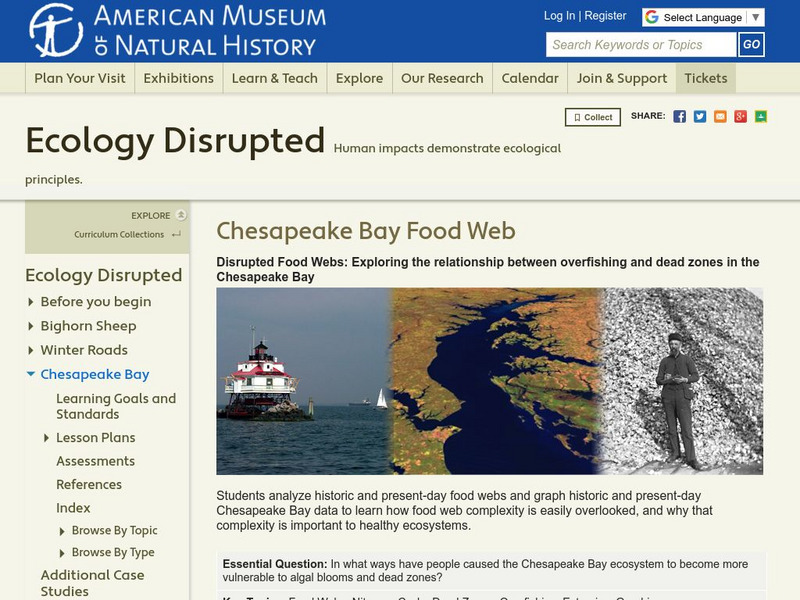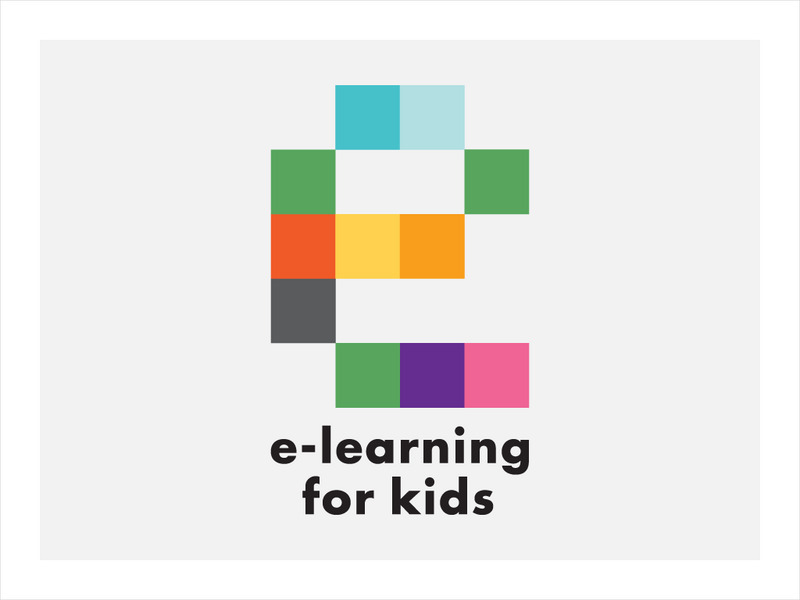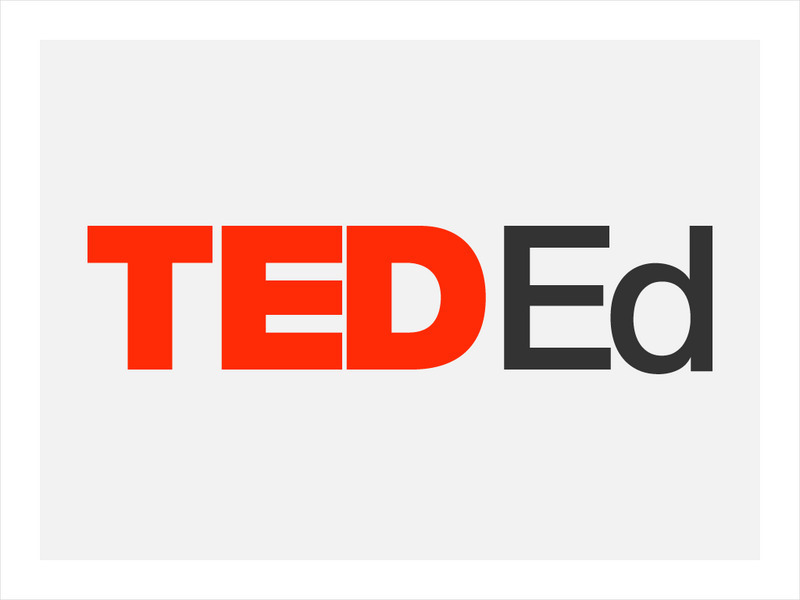CK-12 Foundation
Ck 12: Earth Science: Marine Food Chains
[Free Registration/Login may be required to access all resource tools.] Describes the marine food chain.
National Geographic
National Geographic: Marine Ecosystems and Biodiversity
A collection of three lessons where students learn about abiotic factors in marine ecosystems, about marine food chains and biodiversity, and about marine food webs and trophic levels. Includes handouts, website links, and a vocabulary...
National Geographic
National Geographic: Marine Food Webs
For this lesson, students learn about marine food webs and pyramids, and how energy flows through a marine ecosystem. They then research a marine organism and its role in a marine food web. The class pools their information to create a...
National Geographic
National Geographic: Marine Ecosystems and Biodiversity
In this unit students explore major marine ecosystems by locating them on maps. Students use marine examples to learn about energy transfer through food chains and food webs and then they discuss how food webs can illustrate the health...
Other
Rutgers Marine & Coastal Sciences: Cool Classroom
Students and teachers can explore the work of marine scientists and observe the ocean from their computers. Learn about Rutgers Coastal Ocean Observation Laboratory, discover why oceanography is important, and see what life is like in...
Science Struck
Science Struck: Learn All About the Ocean Food Chain
Read about the different predators, consumers, and producers that make up an ocean food chain.
Georgia Department of Education
Ga Virtual Learning: Marine Invertebrates
Students learn about invertebrates found in the ocean, their individual methods of adaptations, identifying characteristics, and contributions to the marine ecosystem.
NASA
Nasa Earth Observatory: What Are Phytoplankton? Fact Sheet
Learn about the characteristics of and different species of phytoplankton. Topics highlighted in this article include photosynthesis, global change, and the marine food chain.
American Museum of Natural History
American Museum of Natural History: O Logy: Dive Into Worlds Within the Sea
Learn about three different marine ecosystems: coral reefs, the continental shelf, and the deep sea. Interactive game included, which will help players chart the interrelationships among organisms that live in each ecosystem.
Smithsonian Institution
Smithsonian Education: Ocean Planet
A series of lesson plans designed to be used with the Smithsonian Ocean Planet exhibit (available online). Lesson topics include marine ecosystems, pollution of ocean water, animal strandings, and literature.
Other
Digital Library for Earth System Education: Teaching Box: Seasonal Upwelling
A suite of lessons focusing on the process of upwelling. Inquiry-based exploration of seasonal upwelling includes marine food webs, food production in the ocean, wind-driven ocean currents, and seasonal changes in biotic and abiotic...
NASA
Nasa Earth Observatory: Upper Crust
Learn how krill fight for survival as the sea ice melts and the population decreases. Discover how krill relate to our food chain and learn about their development.
American Museum of Natural History
American Museum of Natural History: Dive Into Worlds Within the Sea
Think and Link to investigate three different ecosystem either the deep sea, coral reef or continental shelf. By connecting the dots students make a food chain to see how organisms in each habitat depend on each other.
PBS
Pbs: Secrets of the Ocean Realm
At this site students can read about sea creatures and ocean plant life, and see pictures of each.
American Museum of Natural History
American Museum of Natural History: Ecology Disrupted: Chesapeake Bay Food Web
In this comprehensive lesson plan unit, students examine how overfishing has affected Chesapeake Bay's ecosystem. They will study food webs from the past and present and graph related data.
E-learning for Kids
E Learning for Kids: Science: Titanic Shipwreck: What Are Food Webs?
Jorge is a cook in an underwater restaurant. He knows a lot about food webs. Dive in and learn about it with him.
PBS
Pbs: Nature: The Fascinating World of Jellies
Learn about the mysterious jellyfish blooms that have occurred in the world's oceans. Because the resulting alteration to the marine food web has had devastating effects, researchers grow and study jellyfish at the Monterey aquarium....
Other
North Carolina Dept. Of Environment & Natural Resources: Kids' Educational Pages: Fish
A great site for kids wanting to learn more about fish and have some fun at the same time. It provides information about fish including food chain, fun fish facts, crustaceans, and shellfish: oysters, scallops, and clams. It also...
Enchanted Learning
Enchanted Learning: Plankton
Enchanted Learning takes a basic look at a basic organism: plankton. Learn the definition of plankton, zooplankton and phytoplankton; the first link in the marine food chain.
Smithsonian Institution
National Museum of Natural History: Ocean Planet
Detailed website that was a companion to a 1995 traveling exhibit of the Smithsonian. Links to lesson plans and other educational materials are at the bottom of the page. Enter the exhibition to explore the world of the ocean.
Science Struck
Science Struck: A Helpful Guide to Understand the Photic Zone
The photic zone is the upper layer of the ocean where sunlight can penetrate and support photosynthesis. This article explains the characteristics of this zone, the food chain that exists there, the adaptations of the plants and animals,...
Science Struck
Science Struck: Decomposers in the Ocean: Role and Examples
Describes five different types of decomposers that feed on decaying organic matter in the oceans and that are at the bottom of the ocean food chain.
World Wildlife Fund for Nature
Wwf: Our Earth: Ecoregions: Habitats: Oceans
An introduction and overview of the ocean habitat, the largest habitat on Earth. Includes links to information about three animals that live in this habitat.
TED Talks
Ted: Ted Ed: Why Are Sharks So Awesome?
Sharks have been celebrated as powerful gods by some native cultures. And today, sharks are recognized as apex predators of the world's ocean. What is it that makes these fish worthy of our ancient legends and so successful in the seas?...

